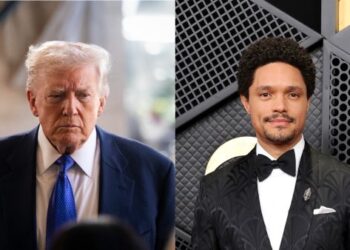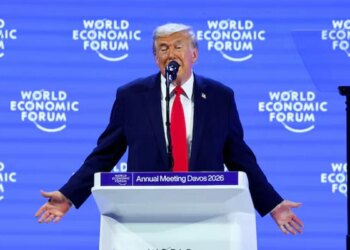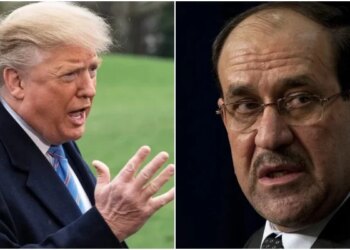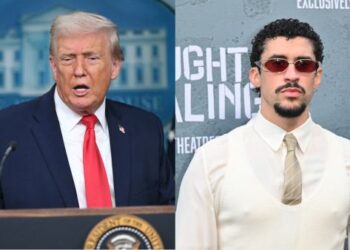Select Language:
- Musk cautions that the bill will exacerbate the US budget deficit.
- DOGE reforms criticized, according to the tech mogul.
- Commits to prioritizing Tesla and SpaceX following backlash.
Billionaire Elon Musk has taken issue with a key spending bill proposed by Donald Trump, marking his first significant disagreement with the US president since he stepped back from his role in reducing government spending.
The tech entrepreneur, originally from South Africa, expressed that Trump’s legislation would inflate the national deficit and undermine the achievements of his Department of Government Efficiency (DOGE), which has already led to the dismissal of tens of thousands of government employees.
Previously a regular associate of Trump, Musk has recently refocused his efforts on his companies, SpaceX and Tesla. He voiced frustration that DOGE has become a “scapegoat” for public dissatisfaction with the administration.
“I was quite let down by the size of the spending bill, which doesn’t just increase the budget deficit but actively undermines our DOGE team’s work,” Musk stated in an interview with CBS News, part of which was broadcast late Tuesday.
Trump’s “One Big, Beautiful Bill Act,” which recently passed through the US House and is now headed to the Senate, is a key element of his domestic agenda, featuring a wide-ranging mix of tax breaks and spending cuts.
However, critics argue that it threatens healthcare and could increase the national debt by as much as $4 trillion over the next decade.
“A bill can either be large or appealing, but it seems challenging for it to be both. That’s my take,” Musk remarked in the interview, which will be fully aired on Sunday.
The White House attempted to minimize any perceived rift over spending without mentioning Musk directly. “The Big Beautiful Bill isn’t an annual budget bill,” said Trump’s Deputy Chief of Staff Stephen Miller on Musk’s social media platform, X, following Musk’s comments.
He added that any DOGE budget cuts would need to go through a separate legislative process targeting federal bureaucracy.
Musk’s statements signal a rare divergence from the Republican president, whom he played a significant role in supporting as the largest contributor to Trump’s 2024 election campaign.
‘Scapegoat’
Trump had appointed Musk to lead DOGE with the task of trimming government expenses, but after a turbulent start, Musk declared in late April that he would largely step back to manage his businesses.
In a separate interview with the Washington Post, Musk expressed that DOGE, which operated from the White House with a team of young technicians, had become a focal point for criticism.
“DOGE has turned into the scapegoat for all the complaints,” Musk told the newspaper at SpaceX’s Starbase launch facility in Texas ahead of the latest rocket launch.
“Whenever something negative occurs, we are blamed—even if we had no involvement.”
Musk attributed DOGE’s struggles to deeply rooted problems within the US bureaucracy, though reports suggest that his authoritative style and unfamiliarity with Washington’s political dynamics were also crucial factors.
“The federal bureaucracy is in much worse shape than I realized,” he concluded. “I knew there were challenges, but it’s a steep hill to climb to affect change in DC, to say the least.”
Despite removing tens of thousands from government payrolls and restructuring several departments, Musk has acknowledged that not all of his DOGE goals were accomplished.
His own enterprises have also faced backlash during this period. Protesters against the budget cuts have targeted Tesla dealerships, and incidents of arson have resulted in some Tesla vehicles being damaged, contributing to a slump in profits.
“Why would anyone burn a Tesla? That’s just not cool,” Musk remarked to the Post.
He has also shifted focus back to SpaceX, especially following several setbacks in his ambitions for Mars colonization. The most recent setback occurred on Tuesday when a prototype Starship exploded over the Indian Ocean.
Last week, Musk announced he would be scaling back financial contributions to political causes after investing around a quarter of a billion dollars to support Trump.







